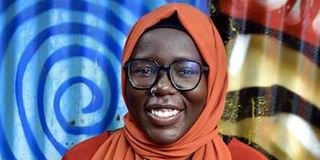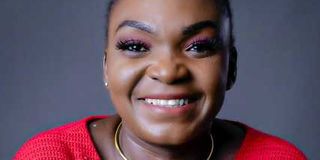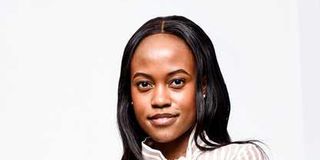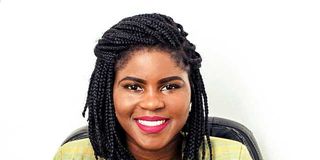
From left: Amisa Rashid, Lynn Kioko, Vigilance Atieno, Winny Okoth and Nyokabi Macharia.
They're climbing corporate ladders without heels, smashing stereotypes without apology, and conquering boardrooms their mothers were barely allowed to clean. Meet Kenya's audacious 30-something women who aren't just leaning in—they're barging through doors that were once padlocked.
"Would your mother recognise your life?" That's the question vibrating through Nairobi's brunch spots and WhatsApp groups as we mark International Women's Day. Thirty years after the Beijing Declaration promised to level the playing field, a generation of Kenyan women now stands where their mothers couldn't even imagine standing.
In 1995, their mothers may have secretly dreamed of becoming CEOs, engineers, or tech entrepreneurs—but often settled for "respectable" careers as teachers or nurses, if they worked outside the home at all. Today's 30-something women? They're not settling for anything.
Nation Lifestyle spent a weekend with these leading lights who are rewriting Kenya's rulebook on womanhood—women who've traded "proper lady" handbooks for business plans and marriage timelines for frequent flyer miles. Their stories reveal both how far we've come and how their mothers' quiet rebellions paved the way for today's revolution.
Pour yourself a glass of something (wine anyone?)—because these women certainly would—and discover how they're creating futures their mothers couldn't even dream of—and what that means for daughters yet to come.

Nivishe Foundation Founder and Executive Director Amisa Rashid Ahmed poses for a picture after the interview on July 10, 2024.
Amisa Rashid, 31
Neuropsychologist/counselling psychologist
Amisa Rashid counts discrimination thrice. She is a Muslim woman coming from the Nubian community, one of the marginalised communities in the country. She grew up in Kibera and forged her path to become a neuropsychologist and counselling psychologist. “I’m the founder and executive director of Nivishe Foundation and we focus mainly on community-based mental health interventions at the community level.”
Growing up, Amisa dreamt big and wanted to be a pilot or aeronautical engineer. “But I was so poor in maths,” she says with a laugh.
Amisa is outspoken and always speaks her mind. Being a Muslim woman, her confidence and out rightness are often frowned upon. While the world outside wanted her to stay silent, Amisa was fortunate to have amazing parents.
“My parents encouraged us to do what we wanted. My first degree was in Arabic and Islamic studies. I have a diploma in public relations and management. After that, I decided to explore psychology more and looked into counselling psychology and neuropsychology. My first master’s was in education management, and I am currently pursuing my second one in public policy and management,” she says.
Amisa is pursuing her passion, defying all odds to make sure that she stands in her own space. However, she says that despite the opportunities that she and her siblings have, her mother had none back in her time. “My mother is one of the most courageous women I know because she went back to school when I was in university. She never had a high school education. She now holds a degree in teaching. Back then, they were not allowed to explore life. Having come from a poor household, the only option available to her was to do any job that came by,” she says.
She adds, “On my part, I get to choose the career path I want to take. I can live life without worrying about what society thinks about me.”
Despite all the opportunities open to her, Amisa says that even when she manages to get a seat at the table, she still has to prove herself. “You have to be smart enough to read the room. There are times when the discrimination is hidden while other times, it is just open for you to see. The good thing is that at least nowadays you can call them out. There are other times when I will speak and people will say, ‘oh you are too smart or too outspoken for a Muslim lady.’
That’s not a compliment. Does that mean that just because we cover ourselves, our brain is covered too? Female founders can tell you, that the funding space for women, especially when you’re fundraising, or when you’re pitching, the field is not equal with men. Men do not have to prove themselves. For us, we have to prove our competency. Then for me, I have to prove myself three times. I am a Muslim, a woman and I come from a minority group.
Nevertheless, I keep pushing on because I tell myself, I need to get in these spaces so that I can pull other people from my background and make it easier for everyone.”

Vigilance Atieno, a multimedia producer, poses for a photo at her home in Nairobi, Kenya.
Vigilance Atieno, 30
Multimedia producer and communications expert
Filmmaking has not always been a first choice for many. The main challenge is the assumption that there is no money to be made in the film industry. Today, women are breaking into the industry and crafting their path. One such woman is Vigilance Atieno, a multimedia producer.
Her journey into the theatre industry started in high school. “I went to Lugulu Girls High School, where I would participate in plays and dramas. Then, I joined Kenyatta University, where I pursued a degree in film and theatre. The department was still very young, so I got to interact with the seniors. They were always trying to make short skits, and we would walk in as the first years and watch them do their work. At the time, I didn’t know that I could become a film producer,” she tells Lifestyle.
When she graduated, Vigilance didn’t mind the humble beginnings. “I started as an intern, then got to a point where I had to work without pay before getting to where I am at.”
Vigilance abhors repetition. So early on in her career, she got the opportunity to explore behind-the-scenes of a set. “I got into the production design department. I’ve done makeup and costume design on set. Then I got into the production department and became a producer, and I hope to one day to become an executive producer. I have been nominated for awards in film festivals and I sit on the jury of the Women in Film Awards.”
When you listen to Vigilance’s story and accomplishments, it sounds like the world is her oyster. However, filmmaking was never in the mix for her growing up in Kisumu. When she was younger, she wanted to become a lawyer.
“I did not even know what filmmaking was all about then, but I know that my dad bought me a camera. I think maybe fate knew that I’d be in this industry. When I got into the industry, we had few women behind the scenes, and one of the biggest challenges has always been people. It is not only parents, but people in general do not see film as a business.
People do not see film as something that someone should focus on and explore. I was lucky my parents never objected to me making the decision to pursue film studies. My dad literally gave me the money to produce my first short film. He even offered to act as an extra.
We still have a challenge of having women take up space in the arts industry. We have a shortage of women in sound design and lighting department. On the positive side, numbers have been growing,” the woman pursuing a Master’s degree in Development Communication, says.
Currently, Vigilance works as a freelance producer and has done a lot of work with Legacy Film and Art Lab.
She cannot help but look back and wish that her mother had the same opportunities. “If we go back in time, women were confined to the traditional gender roles, where the priority was to be a caregiver. You needed to be a mother and wife, and many had to stay home and run things. There weren’t many career options that you could pursue. Remember, society back then was very judgmental of women who left their children to pursue their dreams.
My mom, just like many women during her time, opted to pursue a career that was convenient (teaching). It was either you become a nurse or a teacher. The arts industry could not be a career path for them. You know, as a filmmaker, there are days I do not even stay in my house for over a month. There are days I go to shoot outside the city, even for three months. That was not a privilege that women during my mom’s time could have,” she says.
To young girls, Vigilance says, “Breathe. Breathe in the sense that when you feel overwhelmed, do not be in a rush to feel like life is passing you by. Every day, every second, every moment matters. Do life with your own rules. If you feel like you want a break, take a break. If you feel overwhelmed, seek help.”
Maureen Okumu, 29
Hockey Player
Back when women were seen primarily as wives and mothers, those who pursued careers faced significant stigma. A career in sports was unheard of. However, Maureen Okumu was born in the 21st century, after the 1995 Beijing Declaration, at a time when gender equality was an ongoing conversation. Today, she is a hockey player for the Blazers Hockey Club, the reigning Premier League champions.
She studied teaching at the university, but hockey is what pays her bills. When she is not practising, she is coaching. The 29-year-old has been playing professionally for the past 10 years, right after completing high school.
“In high school, I was a footballer, but my coach realised that other than football, I could also play hockey. I began playing the sport and finally got chosen as team captain. Together with my team members, we participated in the East Africa competition.
It was during one of the games that Josephine Ataro (long-time hockey player and coach) saw me play. She reached out to my mother and offered me a position to play for them after my high school studies. Therefore, in 2014, after high school, I joined Blazers. Then came the difficult conversation with my family about my decision to pursue hockey full-time. At first they were apprehensive but I have managed to pay my school fees and take care of myself.”
Maureen says that she is proud to have the opportunity to play hockey. “However, there are people who say that there are specific games that ladies are not supposed to play, which I feel is gender biased. After all, we are all created by the same God, so there aren’t things that should be men-related and some women-related.”
Growing up, Maureen did not see women playing any hard sports. Her only interaction with the sport was in school. “To see women playing professionally was a challenge. It is only now that unions and federations are trying to bring in equality in sports.”
She says that for any girl looking to play hockey professionally, the most important thing is to believe in herself. “It can be done. It doesn’t matter where you are from or who you are.”

Lynn Kioko, a product manager and telecommunications engineer poses for a photo at her office in Nairobi, Kenya.
Lynn Kioko, 30
Telecommunication and information engineer
Lynn Kioko studied engineering at the university but her path changed when she landed a position as product manager at Absa Bank.
“When I graduated, I jumped straight into the tech industry. Then, I decided to take a leap of faith and applied for Absa Bank Kenya’s Graduate Management Trainee Program. All I had on day one were my problem-solving and soft skills,” she tells us.
Back in the day, pursuing a different path from what you studied was not a possibility. One, it was quite risky. However, Lynn says that the technical skills she acquired from her engineering course have proven helpful in her day-to-day job.
“I used my skills to develop several innovations, like a virtual card, buy now, pay later. I’ve still been able to solve customer needs by scaling the online account opening platform. I am also able to apply those mathematical skills from my undergraduate degree.”
She adds, “When I was growing up three decades ago, women pursuing engineering degrees or women generally in STEM was unheard of. What helped me was the efforts that were made towards women’s empowerment.
So, while in school, I received mentorship and support from women organisations that came to speak to girls. This gave me the courage to step into male-dominated fields like engineering and now even banking.”
Lynn says that for her mother, the support that she received from her father helped her pursue her education. “Every time I talk to my mom, she describes almost not having the opportunity to go to the university. My mother holds a PhD. However, during her time, there was already precedence in the community that boys go to university and girls stay at home. She was lucky that she had a father who did not listen to those societal norms. So she managed to do her undergraduate studies in teaching and now holds a PhD,” she explains.

Nyokabi Macharia is an actress and musician.
Nyokabi Macharia, 30
Actress and musician
Nyokabi Macharia always knew that she wanted to be in the world of arts. “In primary school and high school, I was always the child in the drama club. I then studied public relations at Daystar University, where my acting career kicked off.
Daystar cemented the idea that acting could be a career path for me. There, I was surrounded by brilliant art. Someone was singing; the other was acting. We had so many alumni who had made it from Daystar. Then, after school, I went to do my Masters in Music Theater at the Royal Central School of Speech and Drama in the United Kingdom.
Growing up, acting was not a career. There was no way that I could pursue this career, but my aunt in the United Kingdom kept on encouraging me and telling me that I was very good at drama. However, my parents always used Nameless and Wahu to show that I cannot just rely on music and acting alone.”
While her mom was a teacher, Nyokabi says that pursuing a career in acting would not have been open to her. “During our parents’ time, there were only four rites of passage. You’re born, get married, have children, then die. There were restrictions on the type of career that one could pursue. However, that is not to say that they were silenced. One thing about the women in my family is that we are headstrong and always go for what we want.”

Winny Okoth is a construction manager and the founder of Citified Designs.
Winny Okoth, 30
Construction project manager
Winny Okoth always had a passion for design, it is no surprise then that she chose a career in the build environment. “I chose to study construction management at the university. It was still a fairly new course at the time, but my sister told me that I could learn not just how to design the house but also everything around it,” she says.
Being a male-dominated field, Winny says that there were not many ladies in the profession. “Where I got my first place of work, I was the only lady. On the other hand, there were hundreds of men. Even up to this point, it’s still not a field where there are many women. However, I think when you’re driven by passion, you tend to ignore all the challenges that may be in your path and you just take it one step at a time.”
Winny, just like many other women in majorly male-dominated fields, was not spared from harassment. “The thing that people don’t talk about a lot is the kind of harassment that goes on in these men-dominated fields. You have to find a way to deal with it. Sometimes, you’ll have even to give up a job because you have been placed in a position where the harassment is too much.”
It is this same harassment that pushed the 30-year-old to leave employment and set up her own company, Citified Design, which builds and designs homes. Now, she says she gets to choose who to work with, and she has more clients who have faith in her abilities and skills.
When she looks back at her mother’s life, Winny says that it was the support system around her that made her successful. “My mother is a business woman. She started with running a shop, to building a hotel and now even investing in real estate. Seeing her do this all while balancing her family obligations was inspiring for me. I think it was because of the support that she had from her family and my dad.”






